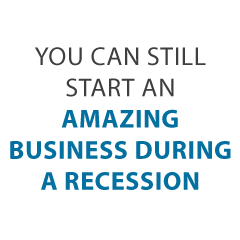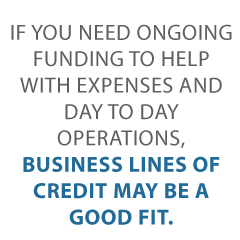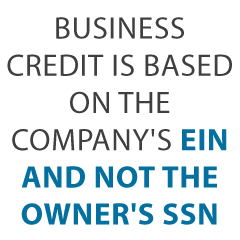You Can Get Business Credit Lines Unsecured by Collateral
Do you need business funding? But maybe you don’t have good collateral? Not to worry – you can still get money. So let’s look at business credit lines unsecured by collateral.
Get Business Credit Lines Unsecured by Collateral: Credit Lines
A credit line, or line of credit (LOC), is an arrangement between a borrower and a bank or private investor which establishes a maximum loan balance that a borrower can access.
A borrower can get access to funds from their line of credit at any time, so long as they don’t go beyond the maximum set in the arrangement, and as long as they meet any other conditions of the finance institution or investor for example, making timely payments.
And business credit lines unsecured by collateral give lenders very little security in case of default. While business credit lines unsecured ed by collateral exist, they can be harder to get.
Advantages
Credit lines offer many distinct advantages to borrowers which include convenience. Borrowers can utilize their line of credit and merely pay interest on what they use, unlike loans where they pay interest on the total borrowed. Credit lines can be reused, so as you acquire a balance and pay that balance off, you can use that accessible credit again, and again.
Details
Credit lines are revolving accounts similar to credit cards, and contrast other kinds of financing such as installment loans. In many cases, lines of credit are unsecured, much the same as credit cards are. There are some credit lines that are secured, and for that reason easier to get approval for. But we’re looking for business credit lines unsecured by collateral!
Credit lines are the most routinely sought after loan type in the business world despite the fact that they are preferred, real credit lines are rare, and difficult to find. Many are also very hard to qualify for, requiring good credit, good time in business, and good financials. But there are other credit cards and lines that few people know about that are attainable for startup companies, bad credit, and even if you have no financials.
Get Business Credit Lines Unsecured by Collateral: Unsecured Business Financing
With this form of business financing, you partner with a lender who concentrates on securing business credit cards. This is a very unusual, very few know of program which few lending sources offer. They can normally get you three to five times the approvals that you can get on your own.
This is because they know the sources to apply for, the order to apply, and can time their applications so the card issuers won’t decline you for the other card inquiries. Individual approvals commonly range from $2,000 – 50,000.
The result of their services is that you commonly get up to five cards that simulate the credit limits of your highest limit accounts now. Multiple cards generate competition, and this means they will raise your limits, more often than not within 6 months or less of first approval.
While these aren’t business credit lines unsecured by collateral per se, they are rather similar. And the differences between and unsecured business credit cards are probably not going to be noticeable to most.
Approvals
Approvals can go up to $150,000 per entity like a corporation. With UBF they actually get you three to five business credit cards which report just to the business credit reporting agencies. This is huge, something the majority of lenders don’t offer or advertise. Not only will you get cash, but you build your business credit also so within three to four months, you can then use your new company credit to get even more money.
Details
You can get credit with no security, assets, or collateral. The lender has no collateral to collect in case of default. Because there is no collateral, and they don’t look or care about your cash flow, the only thing that matters is your personal credit.
With a 650 you will get only personal cards. But with a 680 credit score, you will get both company and personal cards.
Rates
The lender can also get you low introductory rates, more often than not 0% for 6-18 months. You’ll then pay normal rates after that, typically 5-21% APR with 20-25% APR for cash advances. And they’ll also get you the best cards for points. So this means you get the very best rewards.
Just like with just about anything, there are significant benefits in partnering with a source who focuses on this area. The results will be far better than if you attempt to go at it by yourself.
Learn business loan secrets with our free, sure-fire guide.
Qualifications
You must have excellent personal credit right now, ideally 685 or better scores, the same as with all business credit cards. You shouldn’t have any derogatory credit on your report to get approval. And you must also have open revolving credit on your consumer reports right now.
Balance/Limit Ratios
They consider your balance/limit ratios on existing revolving accounts. The lower the ratio, the higher the amount of the approval. A 30% ratio is a requirement. This looks at overall percentage, and individual percentage on each account.
Credit inquiries are a big factor tying into approval. More than six inquires in six months will be too much. Lenders do not want to see the person is applying for new credit, especially no other revolving accounts.
Learn business loan secrets with our free, sure-fire guide.
Guarantors Welcome
Use a guarantor or a credit partner to boost the numbers. Usually these people want a piece of the business in trade for their assistance. Creditors want to know you’ll pay them back. Most sources will charge 9 to 12% success-based fees. Only pay the fee off what you secure.
Fees
All lenders within this space charge a 9-15% success based fee and you only pay the fee off of what you secure. Keep in mind, you get a lot of extra rewards and about three to five times more money in this program than you’d get on your own, which is why there’s a fee, the same as all other lending programs.
You can get approval with a guarantor and you can even use a wide range of guarantors to get even more money. There are also other cards you can get making use of this very same program but these cards only report to the consumer reporting agencies, not the business reporting agencies. They are consumer credit cards versus business credit cards.
Benefits

They deliver similar benefits including 0% intro annual percentage rates and five times the amount of approval of a solitary card but they’re much easier to qualify for.
You can get approval with a 650 score and seven inquiries (or fewer) in the most recent six months and you can have a BK on your credit and other negative items. These are a lot easier to get approval for than UBF business cards.
With all earlier cards above, you must have good consumer credit in order to get approval but what happens if your personal credit is not good, and you don’t have a guarantor?
This is the time when building company credit makes a lot of sense even if you have good personal credit, building your business credit helps you get even more money, and without having a personal guarantee.
Private Investors and Alternative Lenders
Private investors and alternative lenders also grant credit lines. These are easier to get approval for than conventional SBA loans. They also require much less documentation for approval. These alternative SBA credit lines generally demand good personal credit for approval.
Unlike with SBA, many of them don’t necessitate good bank or business credit approval. Nearly all of these sorts of programs call for two years’ of tax returns. Tax returns need to demonstrate a profit. Rates can vary from 7% or greater and loan amounts range from $25,000 into the millions. Loan amounts are typically based upon the revenues and/or profits on tax returns. Sometimes lenders may ask for other financials including a profit and loss statement, balance sheets, and income statements.
Merchant Cash Advances
Merchant cash advances have quickly become the most popular way to get financing, in large part because of the effortless qualification process. Businesses with $10,000 in earnings can get approval, with the business owner having scores as low as 500.
Some sources have now even begun to offer credit lines that accompany their loans. You must have at least $10,000 in revenue for approval. You should be in business for at least one year, however three years is better. Lenders typically want to see a credit score of 650 or better for approval.
Loan amounts are typically around $20,000. Lenders routinely do pull your business credit, so you need to have some credit already and in some cases lenders will want to see tax returns.
Rates vary, due to the risk for this program, and there aren’t a lot of funding sources who offer it.
These can be – in a way – business credit lines unsecured by collateral. This is because the lender gets something better than collateral – a percentage of your incoming revenue.
Get Business Credit Lines Unsecured by Collateral: Credit Cards and Lines are Very Similar
Credit cards frequently offer 0% intro rates for up to two years. This is also extremely useful for startups in particular. And credit lines let you take out more cash at a more affordable rate than do cards. These are the primary two differences which will have an effect on you between credit cards and credit line.
Investopedia even says that “lines of credit are potentially useful hybrids of credit cards.”
Both cards and lines are revolving credit. Credit lines are tougher to qualify for as card approvals are usually very quick, many times automated, while at the same time line require an in-depth underwriting review. Lines usually offer lower rates, per Bankrate card rates average 13% while lines average 4%.
And no matter what, business credit lines unsecured by collateral are going to be even harder to qualify for.
Learn business loan secrets with our free, sure-fire guide.
Unsecured Business Credit Cards
Many of these cards report to the consumer credit reporting agencies. They all demand a personal guarantee from you. You can get approval typically for one card max as they stop approving you when you have two or more inquiries on your report.
Most credit card providers feature business credit cards including Capital One, Chase, and American Express. These have rates similar to consumer rates and limits are also similar.
Some of them report to the consumer reporting agencies, some report to the business bureaus. Approval requirements are similar to consumer credit card accounts.
They are pretty similar to business credit lines unsecured by collateral.
Inquiries
Normally, when you apply for a credit card you put an inquiry on your consumer report. When other lenders see these, they won’t approve you for more credit for the reason that they aren’t sure how much other new credit you have recently obtained.
So they’ll only approve you if you have no more than two inquiries on your report within the most recent six months. Any more than that will get you refused.
Establishing Business Credit
Business credit is credit in a company name, in association with the business’s EIN number, and not the owner’s Social Security Number. When undertaken properly, you can acquire business credit without a personal credit check and no personal guarantee. This is a thing all other cards above can’t deliver.
You can get three types of business credit cards. First is vendor credit, which offers net 30 terms to start a business credit profile. Then is retail credit, where you will get credit cards with high limits at most establishments.
Next is fleet credit. It’s credit to fuel, service, and maintain company vehicles. And then there’s cash credit, which includes Visa, MasterCard, and American Express cards that you can use anywhere. You can acquire these without any credit check or guarantee. Limits are oftentimes $5,000 – $10,000 to start, and can exceed $50,000.
While these types of credit aren’t business credit lines unsecured by collateral, they can often be better. They are often easier to qualify for.
But What About The SBA?
The majority of credit line types that most entrepreneurs think of come from standard banks and traditional banks use SBA loans as their principal loan product for small business owners. This is due to the fact that SBA guarantees as much as 90% of the loan in the case of default. These credit lines are the most challenging to qualify for because you must qualify with SBA and the bank.
Furthermore, you are nearly always going to need some form of collateral. So, by definition, they won’t be business credit lines unsecured by collateral.
Business Credit Lines Unsecured by Collateral: Takeaways
Your business can get business credit lines unsecured by collateral, if you know where to look. Learn more here and get started toward establishing business credit.
The post Get Business Credit Lines Unsecured by Collateral appeared first on Credit Suite.













